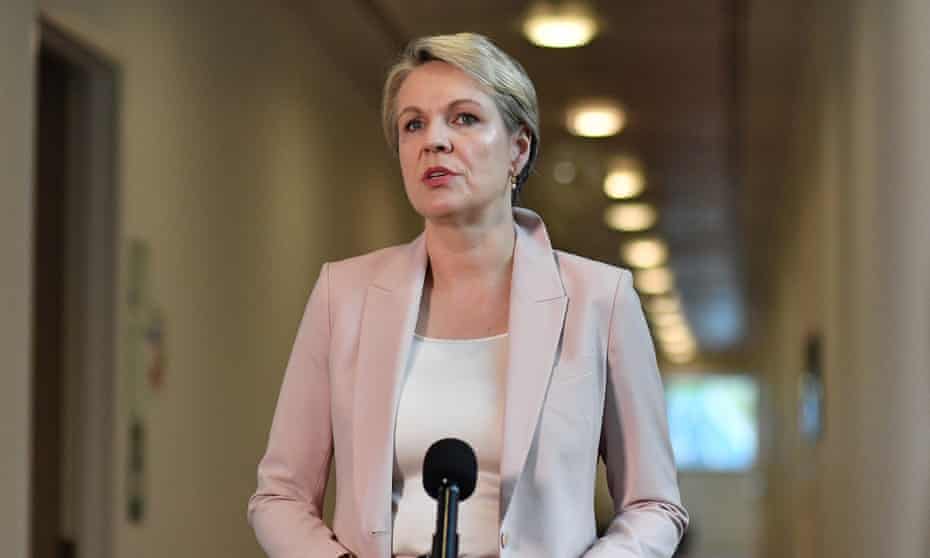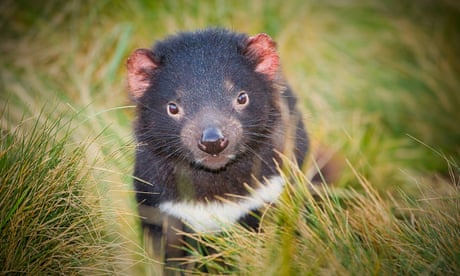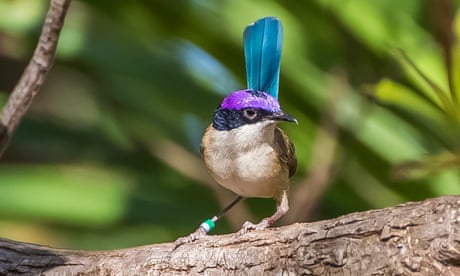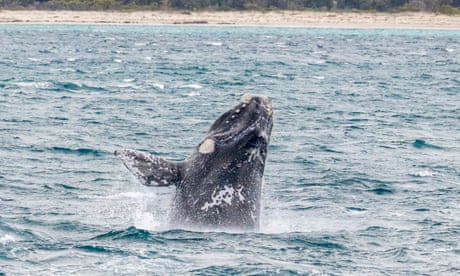Extract from The Guardian
Minister will release five-yearly report which she says details ‘alarming story’ of native species extinction and cultural heritage loss.

Tue 21 Jun 2022 03.30 AEST
Last modified on Tue 21 Jun 2022 07.26 AESTIn one of her first interviews as the new federal environment and water minister, Plibersek said the state of the environment report – a five-yearly official scientific assessment – would be released when she gave a National Press Club address on 19 July. It would help inform changes Labor planned to strengthen the country’s widely criticised national environment laws, she said.
The previous environment minister, Sussan Ley, received the state of the environment report last December and ignored calls to release it before the election. Plibersek said she believed Ley had not released it “because it would have confirmed in people’s minds what so many environment groups and others have been saying – that the state of the environment is getting worse, that rates of species extinction have accelerated”.
“[It] tells a very alarming story about environmental decline in Australia, and about lost cultural heritage, including shocking events like the Juukan Gorge destruction,” she said. “It tells a damning story of neglect by the previous government, and we’ve got a lot of work to do to fix that up.”
Plibersek’s move from the education portfolio to environment and water was a surprise when Anthony Albanese announced his cabinet three weeks ago. She said her first priority would be keeping election commitments made by former shadow environment minister Terri Butler, who lost her seat at the election. They included support for the Great Barrier Reef, improving urban river health, boosting recycling and addressing challenges with the Murray-Darling Basin Plan.
Plibersek also said that:
She wanted Australia, which has one of the world’s largest marine parks areas, to take a global leadership role in ocean protection. She plans to attend the UN ocean conference in Portugal next week.
She would release the water for the environment special account report – on the recovery of environmental water in the Murray-Darling Basin – after parliament returned in July.
Her impression of the environment department was of “fantastic, highly professional, skilled public servants with real commitment to doing the job well”, but with an “extraordinary reliance” on contractors. She hoped to reduce that and have more permanent positions, in line with Labor policy.

Plibersek said she was “very worried about native species extinction” – several reports have found Australia is a global leader in losing mammal species – but changes to the Environment Protection and Biodiversity Conservation (EPBC) Act and designing a promised independent environment protection agency would take time.
She would formally respond to a review of the EPBC Act, completed in the previous term of parliament by former consumer watchdog chief Graeme Samuel, after speaking with Samuel and consulting with environment, business and First Nations groups and state, territory and local governments.
Samuel found the environment was in unsustainable decline, the EPBC Act was failing and made 38 recommendations to address it. Plibersek said the review was “huge and thoughtful” and she wanted to do it “proper justice”.
“I’m not going to rush this or make it up,” she said. “This is a really important part of setting the standards that we want to see in environmental protection and management for decades to come and making sure that we do it in a way that doesn’t set up this false dichotomy between protecting the environment and having jobs, progress and development.”
She said whatever resulted needed to “do a better job at protecting the environment” and “give faster, cheaper decisions for business”. “At the moment, we’ve got an EPBC Act, that’s not really doing either,” she said “It’s very kind of process focused, rather being outcomes focused. So we need to have a clearer idea of what we’re trying to achieve with environmental protection.”

Guardian Australia recently revealed that Ley, in one of her final acts as minister, scrapped 176 recovery plans for threatened species and ecosystems.
Asked if she would reinstate the plans, Plibersek said: “We absolutely need to take strong action on threatened species extinction more generally, and if recovery plans are the best way to do that then we’ll do recovery plans, but there are other approaches that we need to include as well.
“Sometimes just taking a single species approach is not as effective as we’re looking at ecological communities, and so I’ll be working with the Threatened Species Scientific Committee to examine the best and most appropriate way of dealing with threatened species recovery.”
Plibersek said the government had committed nearly a quarter of a billion dollars over the next four years to help address threatened species recovery. Scientists and environment groups have estimated it could cost between $1.5bn and $2bn a year to help endangered wildlife recover.

As environment minister, Plibersek will be responsible for deciding whether to allow major fossil fuel developments that require assessment under the EPBC Act. It is a contentious issue given Labor’s climate commitments, and the Greens campaign for a ban on new coal and gas projects.
The new minister said she would make decisions according to the law and “the evidence before me”.
“I’ll discharge my duty as a minister to make a decision that is in line with the laws as they exist,” she said. “We will always as the Labor party make decisions in the best interests of the nation. That does mean better protection for the environment, but it also means making sure that we’ve got jobs and a strong economy. These two things need to work together for the benefit of all Australians.”

No comments:
Post a Comment